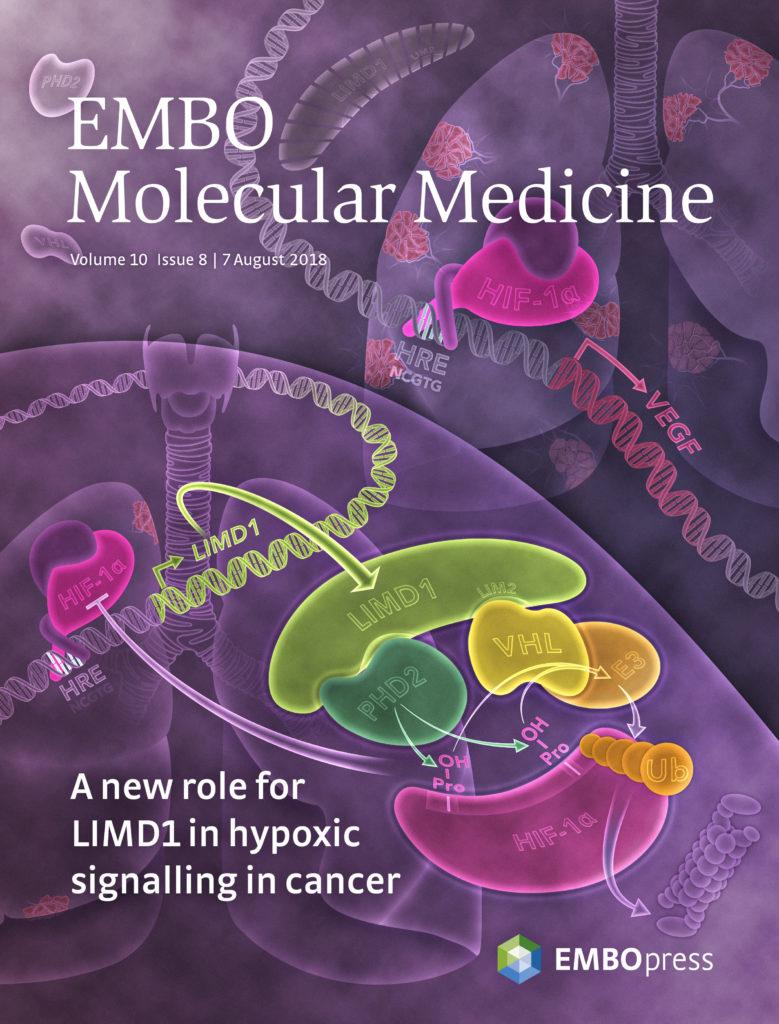Researchers identify new mechanism implicated in lung cancer progression
A new study performed by researchers from Barts Cancer Institute led by Dr Tyson Sharp, Lead of the Centre for Molecular Oncology, has identified a novel mechanism implicated in the development of lung adenocarcinoma (the most common type of non-small cell lung cancer), mediated by the loss of a gene called LIMD1. The findings open a new field of research into the cause, diagnosis and prognosis of LIMD1-negative lung cancers and may aid in the development of chemotherapeutic drugs to treat this disease.

The research, published recently in EMBO Molecular Medicine, highlights a fundamental process in which LIMD1 regulates the cellular response to low oxygen levels, known as hypoxia. Hypoxia is characteristic of most solid tumours, including lung cancer, and is associated with poor patient prognosis as it makes tumours more resistant to therapy.
Deregulation of an adaptive response
The new study has found that some cancers grow particularly aggressively because they are permanently locked in a low oxygen survival mode, urgently and constantly producing new blood vessels to aid their growth.
This survival response is similar to that found when people (such as mountain climbers) ascend to high altitudes and their bodies increase the production of red blood cells to compensate for the low oxygen levels.
The study revealed that 47% of lung adenocarcinoma cases have lost a gene called LIMD1, which is required to help healthy cells respond to high or low levels of oxygen. Consequently, cells lose their ability to recognise whether oxygen levels are adequate and produce signals to increase and continue the production of blood vessels. Ultimately, this enables these particular lung cancer cells to grow faster and larger.
Hope for new targeted therapies
Lung cancer is the third most common cancer type in the UK, with approximately 46,700 new cases diagnosed each year. Around 35,600 people lose their lives to this disease annually, making it the most common cause of cancer mortality in the UK. As the mortality rates for this disease have not shown much improvement in the last 40 years, it is vital to develop new treatment options.
The findings of the study may pave the way for the development of new chemotherapeutic drugs and the team now endeavour to develop a therapy to target LIMD1 loss in lung cancer. The team is the only one working on developing a therapy for LIMD1-negative adenocarcinoma and, as LIMD1 is lost in almost half of lung adenocarcinoma cases, it is hoped that targeting this gene will prove to be an effective treatment option.
The research was performed in collaboration with researchers from the University of Nottingham, The Francis Crick Institute, National Yang Ming University, Manchester Metropolitan University and the University of York. This research was supported by Cancer Research UK, Biotechnology and Biological Sciences Research Council and the Medical Research Council.
Category: General News

No comments yet